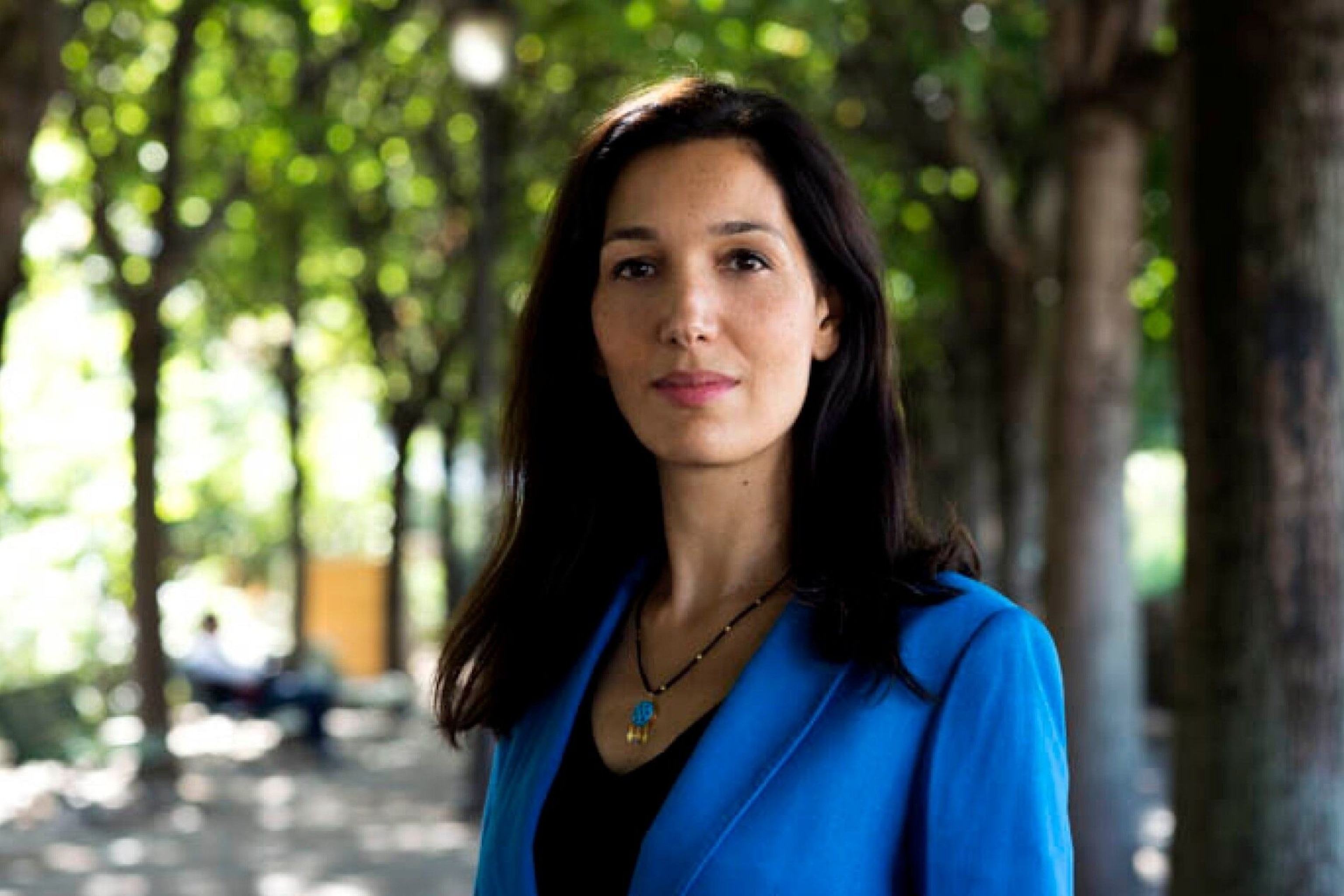
Notes from an author: Delphine Minoui on Istanbul's resilient Syrian community
Even in the face of turbulent politics, many Syrians proudly call the Turkish metropolis home, finding sanctuary in its food, music and sense of community.
It was the summer of 2015 and my family had just moved from Cairo to Turkey, for my latest posting as a Middle East correspondent for Le Figaro newspaper. I was walking my three-year-old daughter to school through the cobbled streets of Istanbul when we saw a painting of Aylan Kurdi, a Syrian refugee boy of her age, his lifeless body lying on a Turkish beach. Aylan’s picture had recently made headlines after he drowned in the sea trying to reach Greece with his family, hoping for a better life away from war. The artist, an old Turkish man in his late seventies, was standing in front of his frame, keen to communicate the tragedy with passersby. His act warmed my heart. It echoed the wave of solidarity that was then blanketing the country: people rushing to the border to help newcomers; charity associations collecting food and clothes; doctors volunteering to treat the sick.
More than six years later, the mood has changed. Apart from a few signs, like the ‘welcome to refugees’ graffiti that appeared recently in my neighbourhood, doors are closing and most Syrians I know are adopting a low profile. As the upcoming Turkish elections get closer, most political parties are inclined to send some of the 3.5 million Syrian refugees back to their country.
“We, as Syrians, no longer feel safe in Istanbul,” Ahmad Muaddamani told me. A brilliant Syrian activist, Ahmad was one of the co-founders of the Daraya secret library, filled with books salvaged from Syria’s bombed-out houses, which I wrote about in The Book Collectors of Daraya. After escaping to Turkey in 2018, Ahmad sought asylum in France. Yet many young Syrians of his age are proudly calling Istanbul home.
“Life is not easy; I feel neither a refugee nor a citizen,” said Yaman Khoraki — a Syrian friend who fled the bombs in Aleppo in 2014 — on one of our many strolls in the Fatih district, known as Istanbul’s ‘Little Syria’. When he arrived in Turkey, Yaman thought he would stay for a few months. The Syrian war escalated, and he ended up settling for good. Despite being eligible for Turkish citizenship, Yaman’s request was rejected, and he fears being kicked out if the government tightens its refugee policy. Nonetheless, he has built a bond with this vibrant city of more than 15 million citizens. He studies medicine, has learned Turkish, made Turkish friends. During the first Covid-19 outbreak in 2020, he was on the frontline taking care of patients. “At the end of the day, we have so much in common from our Islamic traditions: Ramadan, music, food,” he said. “If I were living in Norway, I’d feel much more disconnected.”

Whenever he misses his country, Yaman wanders around Little Syria’s numerous pastry shops and falafel stands, where the smell of cardamom coffee and fresh flatbread fills the streets. On a sunny Christmas Day in 2021, we met in Saruja, a restaurant famous for its ouzi, crispy filo parcels of rice, beans and meat. This time, he wasn’t alone.
“Here is my fiancée,” he said, proudly introducing me to Kamar, a pharmacy student who was only nine when her family left Syria. It struck me that even though she barely remembers Syria, Kamar insists she will teach her kids both Turkish and Arabic.
A few days later, I took a boat to Kadiköy, on the Asian side of the Bosphorus, to visit another Syrian friend, Omar Berakdar, who founded a gallery called Arthere in 2014. Omar arrived in Turkey as a refugee at the beginning of the Syrian war. His two-floor space, including a library, mini-cafe and darkroom, became a refuge for everyone.
“We welcome Syrian artists as well as musicians and photographers from Iran, Egypt, Colombia and India, but also Western expats — and a great number of stray cats,” he laughed. Despite a rise in Turkish nationalism, he’s never faced trouble. On the contrary. During the venue’s many nightly jam sessions, he welcomes locals, with guests often overflowing into the street to smoke cigarettes and drink beer.
“The neighbours never complain,” he said. “Some of them even join us. And I can always rely on the print-shop owner next door to keep an eye on the gallery. This trust is dear to me. That’s the Istanbul I love.”
Published in the April 2022 issue of National Geographic Traveller (UK)
Follow us on social media